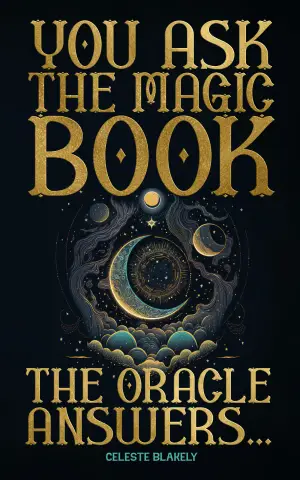I recently finished “The Fourth Daughter” by Lyn Liao Butler, and I must say, what a heartfelt and captivating journey it was! As someone who loves stories that explore deep emotional connections within families and delve into cultural histories, this book caught my attention right away. The themes of family bonds, food, and untold histories promised a rich tapestry, and I was eager to dive in.
“The Fourth Daughter” intertwines the narratives of Chef Liv Kuo, who faces aftermath trauma that shackles her in her Manhattan apartment, and her beloved grandmother, Ah-Ma, who is on a quest to find her long-lost fourth daughter. The backdrop of this family saga is Taiwan, gracefully intertwining the historical contexts of the island under martial law with personal histories. The discovery of a precious old cookbook adds yet another layer to their shared experience, blending love and cuisine seamlessly.
One of the aspects I absolutely loved about the book is the character development—especially Liv’s journey towards healing. Readers feel her struggle. Her relationship with Ah-Ma resonates deeply, particularly in moments reflecting genuine love and warmth, which drew me back to my own familial ties. Additionally, as noted by many readers, the depiction of Taiwanese food is mouth-watering, enriching the narrative and making it feel authentic. I found myself craving a dish or two as I read through the beautifully descriptive passages, much like what Gloria Walski mentioned in her review.
That said, the book isn’t without its flaws. Some readers, including Christina Boyd, commented on the pacing and how certain parts felt rushed, especially the emotional aspects. I felt that Liv’s journey felt a bit too swift at times. While her healing was beautifully depicted, the pace occasionally led to a feeling that her emotional breakthroughs came too conveniently. Moreover, a few twists in the storyline seemed predictable to me; while they didn’t detract heavily from my enjoyment, they did lessen the suspense.
In a similar vein, some readers, like luxylu, pointed out that elements of the plot leaned into stereotypical portrayals, particularly involving Liv’s dependency on Simon as a sort of ‘hero’ figure. This dynamic felt slightly dated and didn’t quite reflect the depth of modern relationships that I expected from a book steeped in contemporary themes. I appreciated what these readers brought up—it is a nuanced representation we need to be aware of, which might prevent idealizing certain tropes.
Nonetheless, the book delivered on its promise of an inspiring family saga. Each page led me to reflect on the indomitable nature of motherly love and the beautiful yet complex tapestry that family histories can be. The narrative not only made me long for the culinary delights described but also piqued my curiosity about Taiwan’s past, an aspect that I hadn’t explored in-depth before.
In conclusion, my overall experience with “The Fourth Daughter” was deeply enriching, marked by emotional bonds, nostalgia, and vibrant cultural insights. The well-crafted story, although with a few pacing issues and predictable elements, still succeeded in moving me. If you’re someone who enjoys family sagas with a rich cultural backdrop, this book is definitely worth a read. I highly recommend it for anyone interested in exploring themes of love, loss, and the healing power of family.








